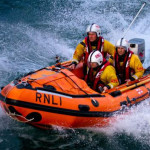At Wednesday’s Children and Young People’s Scrutiny Panel, John Coughlan, director of children’s services presented an overview of the situation with education on the Isle of Wight.
Although an optimistic outlook was encouraged, it was hard to not see the information for what it was. Very bleak.
Unacceptable standards
Excluding the two private schools, the Isle of Wight has six secondary schools; Christ the King College; Medina College; Carisbrooke College; Ryde Academy; Sandown Bay Academy and Cowes Enterprise College.
As widely reported, following Ofsted inspections, three of those six schools are in ‘Special Measures’, one has ‘Serious Weaknesses‘, one ‘Requires Improvement‘ and only one is ‘Good’.
The result is that an estimated 11% of the Island’s secondary age children attend a good school.
Yes, only 11% of Island teenagers attend a good school.
15% inadequate schools
According to John’s presentation the national average for ‘Inadequate’ schools is 3%. We heard on Wednesday that on the Isle of Wight this figure is a whopping 15%.
Despite this, a Children’s Society survey has shown the aspirations of Island children are above national averages, with Island children clearly wanting to do better.
Worst absenteeism problem in country
John went on to reveal the shocking news that the Isle of Wight has the worst absenteeism problem in country, “by a mark”.
He felt this was critically important to the improvement of the education system on the Isle of Wight, going on to say,
“Nothing we do about the rest of the system is going to make a difference unless the children are in school.”
John’s presentation revealed that on average, one in 12 days is being missed by pupils. It should be made clear that some of this relates to the fact that some schools have high levels of exclusion.
The problem of surplus places
In relation to secondary schools, John told members that based on their first analysis about the current patterns of forecasting, without being about to factor in the free school or studio school – currently unknown factors – and despite knowing there is significant surplus places in secondary schools at present, none of that would support an argument to close a school.
He added
“That’s not to say that won’t happen, but we’re not looking at restructuring to the point of school closures.”
Post 16
He went on to say that post-16 provision is also a challenge as there is so much of it.
Its effectiveness has to be a question, he said.
He also pointed out that A-Level performance is further off the national benchmark than GCSEs.
Concluding, John said that the team did not feel bleak about the situation any more. There has been some “fantastic joint working” between the council partnership he told members, as well as encouraging platform for future action.
He said,
“I think we have a duty of optimism about it, not a blind optimism, but we are getting the platform ready now to take it forward, both in terms of organisation but particularly helping schools to focus upon teaching and learning. It’s the bottom line.”
Image: RosenGrant under CC BY 2.0





